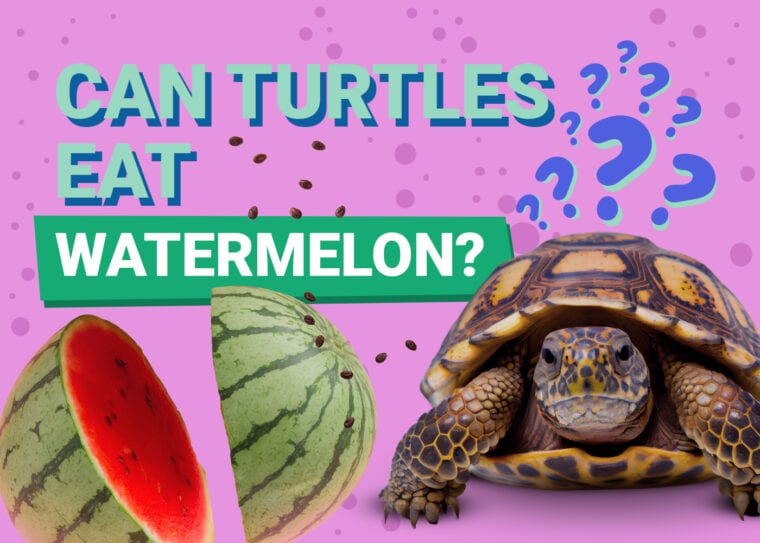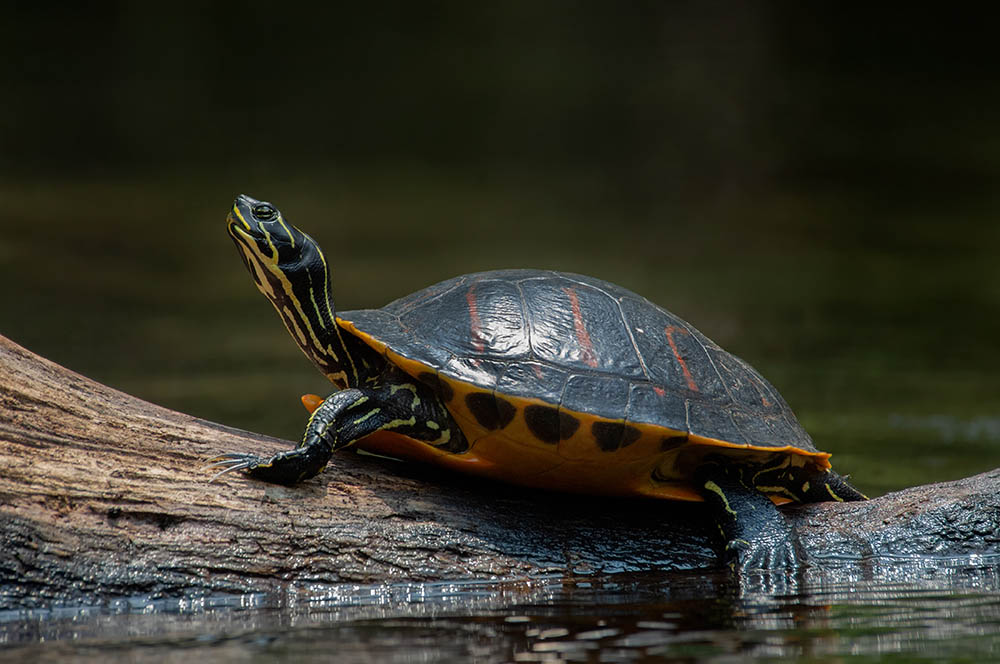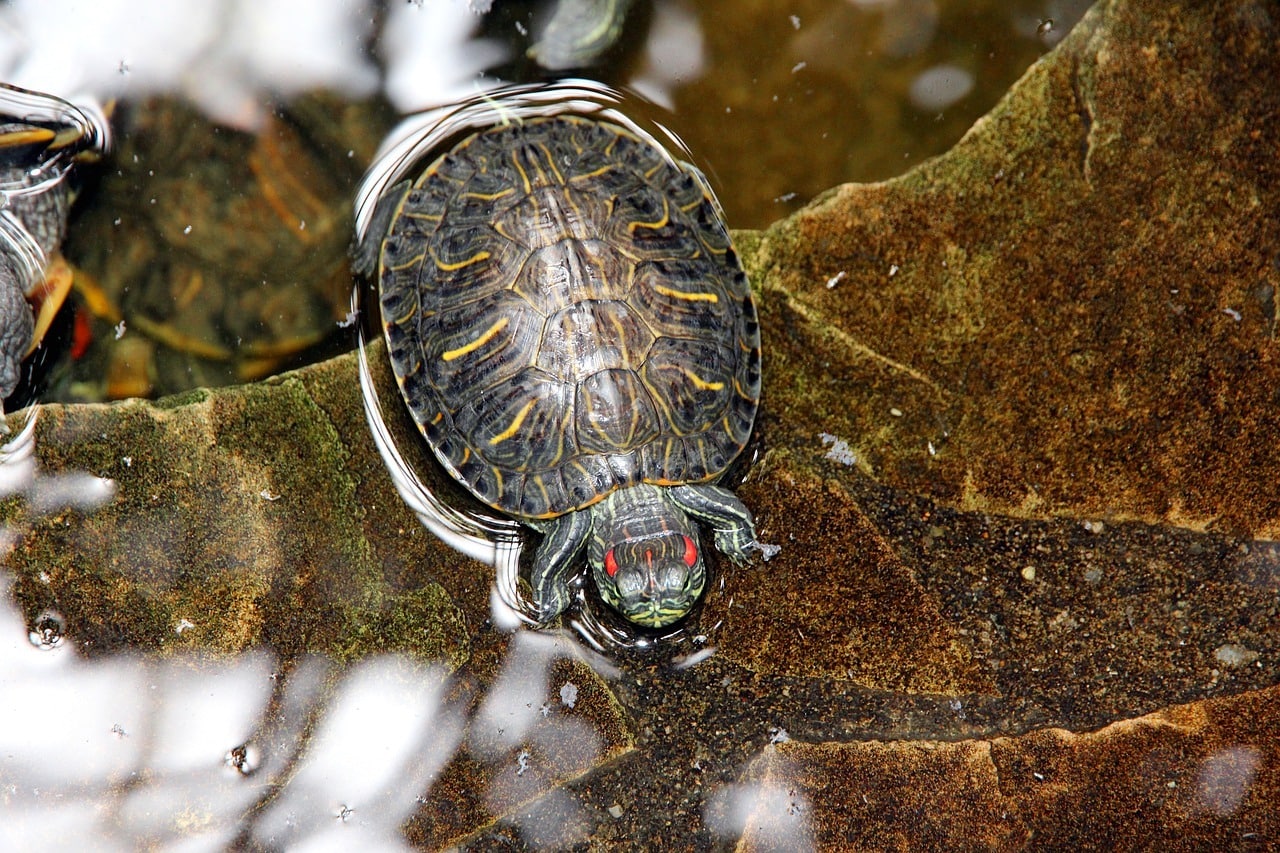
Few things are as adorable as watching your pet turtle chow down on various treats. But before you feed them anything, you need to ensure that it’s safe for them.
The good news is that watermelon is considered safe for healthy, omnivorous pet turtles. Of course, the key to everything is moderation.
Here, we break down everything that you need to know about watermelon and other tasty treats, along with information about foods that you need to avoid. We’ll be specifically focussing on aquatic turtles, such as red-eared sliders (Trachemys scripta elegans) and the North American box turtles (of the genus Terrapene), which includes the Eastern box turtle (Terrapene carolina carolina).
Is Watermelon Safe for Turtles?
Absolutely! While there’s debate about whether you should give watermelon to turtles at all since it’s not part of a wild turtle’s diet, there’s little doubt that they can eat it.

Fruits should only be offered in moderation for most pet turtles. Eastern box turtles tend to tolerate fruits well, but even for them, fruits should only comprise around 10-15% of their diet (at most).
Since fruits form such a small minority of a pet turtle’s diet, this also minimizes the nutritional impact they have on turtles (as far as their perceived benefits are concerned).
Are Fruits Bad for Turtles?
Most fruits should be offered to your pet in moderation because they are mostly water and carbohydrates, which are present in the form of naturally occurring sugars. These sugars are what give fruit their sweet flavor but should also be controlled in a pet turtle’s diet. Therefore, fruits should only be offered to your pet in moderation.

What Foods Should You Not Feed to Turtles?
While there are plenty of foods that you can feed to your turtle, such as watermelon, not everything is fair game. Here, we highlighted four foods that you should avoid feeding to your turtle. Some of them might surprise you!

The Ideal Turtle Diet
Turtles that are kept as pets are first divided into categories of being carnivores, omnivores, or herbivores. Within these categories, individual species of turtles have very distinct characteristics. Therefore, they have very distinct nutritional requirements.
The common factors in turtle nutrition are the following:
For most species of turtles, precise nutritional requirements haven’t been determined. Part of the reason why things are this way is because turtles are cold-blooded animals. Their metabolism is affected by the temperature of their environment. This means that estimations of energy requirements can only be made with the temperature being factored in.
Estimations of a turtle’s standard metabolic rate at various temperatures have been conducted. Because of this, most vets are able to provide nutritional guidelines for turtles. However, generic guidelines do not apply to all turtles, and it’s important to seek advice from your veterinarian that caters to your pet’s unique needs.
The diet of most turtles is a combination of animal- and plant-based foods. Literature has provided insights into custom meal plans for the species we’ve discussed in this article.
Source: Sciencedirect
As several factors play a role in your pet’s diet, it’s best to consult your veterinarian to formulate a meal plan that works best for your pet.
Final Thoughts
Don’t overthink your turtle’s diet. Give them tons of veggies, the occasional fruit (such as watermelon), and plenty of live prey and pellets. Variety should come with the veggies and fruits, but it’s always a good idea to research a food first to ensure that it is safe for your turtle before adding it to their diet. Also, wash each fruit and veggie before feeding it to them.
While turtles have a rather varied diet, they’ll undoubtedly enjoy chowing down on watermelon. Not only do they love it, but in moderation, it’s also extremely good for them. Just be sure not to give them too much, no matter how cute they look!
Related Topics:








